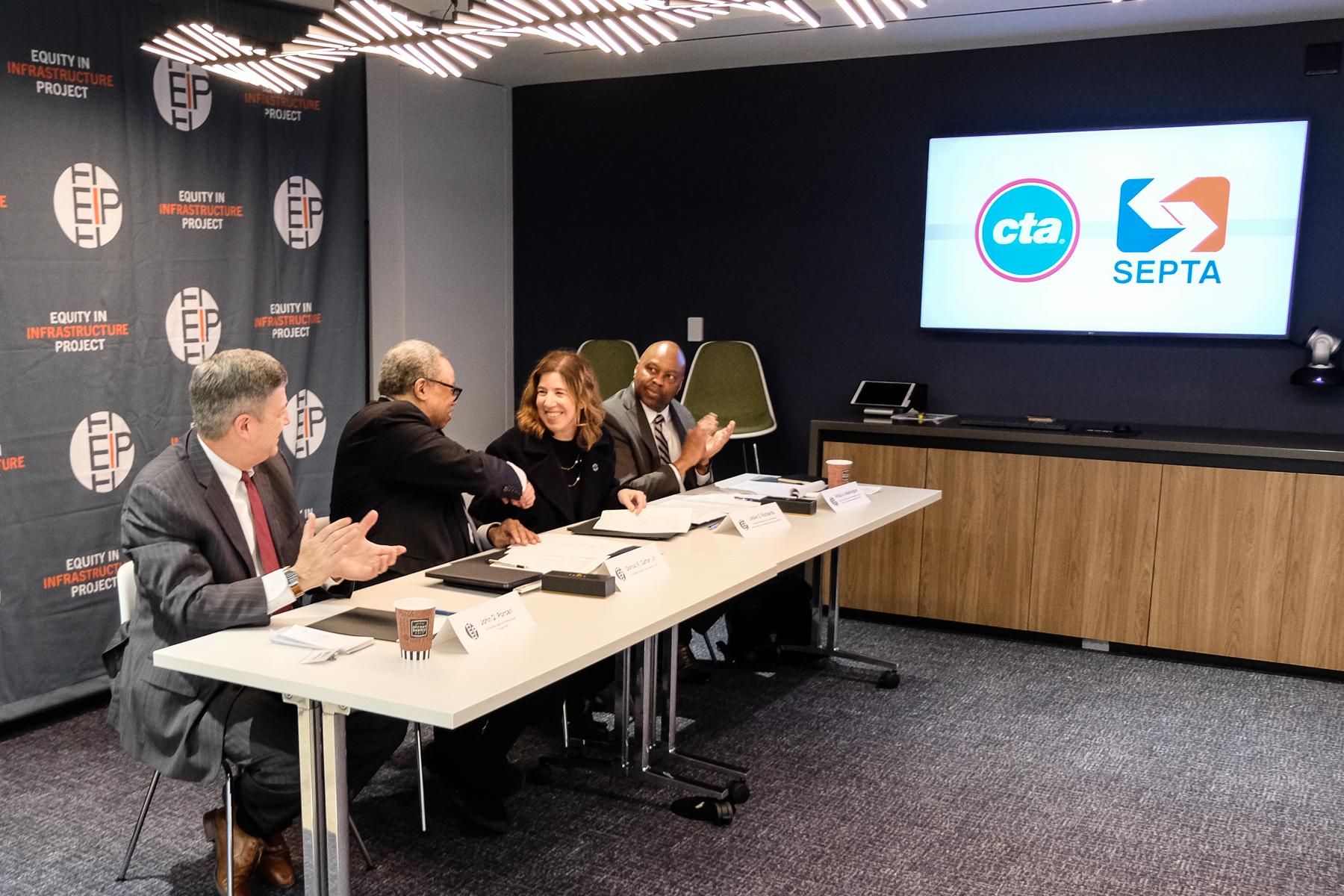CHICAGO TRANSIT AUTHORITY & SOUTHEASTERN PENNSYLVANIA TRANSPORTATION AUTHORITY SIGN GROUNDBREAKING AGREEMENT
As Part of the Equity in Infrastructure Project, CTA & SEPTA Recognize Each Others' Small Business Enterprises
WASHINGTON, DC -- Through their participation in the Equity in Infrastructure Project, the chief executives of CTA and SEPTA signed a first-of-kind MOU to recognize each others' certified Small Business Enterprises (SBEs) on Monday, January 9. The hundreds -- and even thousands -- of SBE/MBE/WBE and similar certification programs nationwide create a complex and costly bureaucratic barrier to Historically Underutilized Businesses (HUBs) being awarded public infrastructure contracts. The goal of this MOU is to move toward broader reciprocity and even a national certification database.
The signing took place in Washington, DC at AASHTO headquarters at an event held alongside the The Transportation Research Board (TRB) 102nd Annual Meeting. During this time of unprecedented federal investment in infrastructure, the Equity in Infrastructure Project's mission is to increase contracting opportunities for HUBs in the infrastructure space to create community wealth.
Key participants in the signing event were:
- CTA President Dorval R. Carter, Jr.
- SEPTA CEO & General Manager Leslie Richards
- EIP Chair/Co-Founder Phillip A. Washington (CEO, Denver International Airport)
- EIP Co-Founder John Porcari (former Deputy Secretary, USDOT)
- AASHTO Executive Director Jim Tymon
Carter said at the event: "[The MOU will] open up new opportunities for the SBEs and DBEs that do business with us in totally new markets without having to go through a lot of the paperwork and other barriers that they may face. From my perspective, what does that mean? That means I'm getting a bigger pool of companies that can compete for and get business at CTA. What does it mean for the DBEs? It means you are getting easy access and support to pursue business opportunities outside of the area that you have historically pursued -- and we hope that what will come out of that is more opportunities and more growth for these companies that allows them to develop and ultimately start to compete at a much higher level in our industry."
Richards said at the event: "With the title of the largest poor city in the United States, we have the largest percent of our population at or below the poverty line. So not only does this [MOU] help our industry, it’s going to help the people that live in the Philadelphia region. We are growing the ability for Historically Underutilized Businesses to have opportunities that they have not had before. We do want it to be a national model. We want others to replicate it, because we will be giving opportunities with the least burden to Historically Underutilized Businesses."
Washington said at the event: "There is nothing like a prime [contracting] opportunity for a minority business to increase generational wealth, with the expectation that those who are awarded prime contracts will look to hire people in those underserved communities, thereby increasing generational wealth in those communities."
Porcari said at the event: "One of the important ways to bring more value to a project is to open the aperture of opportunity for Historically Underutilized Businesses. The signing ceremony today is two agencies recognizing one of those nuts and bolts issues that hold back Historically Underutilized Businesses and saying, 'we're going to do something about this."
Tymon said at the event: “This is something we are very interested in getting state DOTs more involved in,” regarding EIP.
